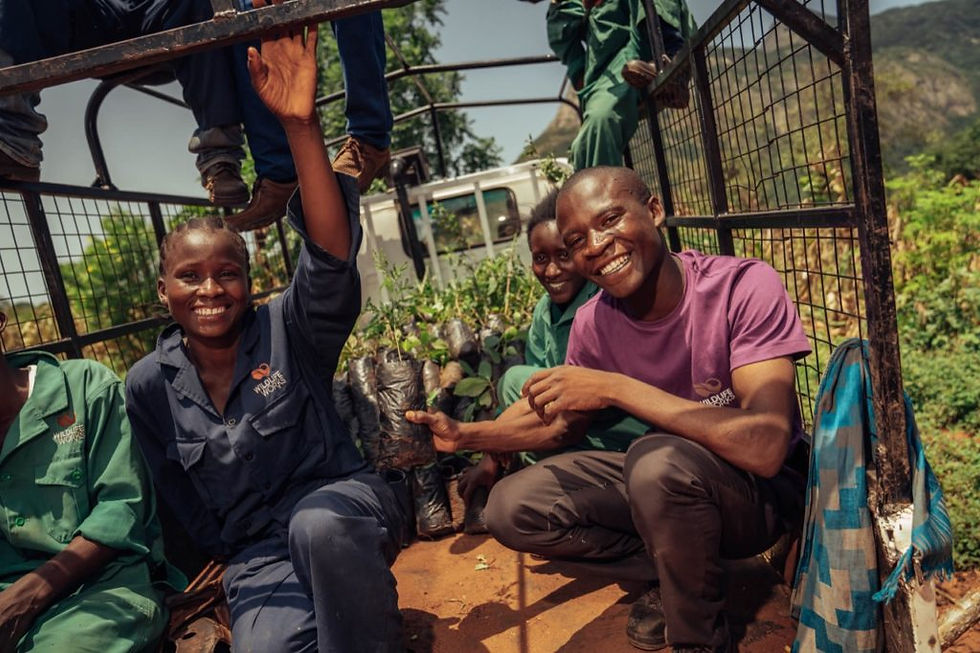Wildlife Works Personality Profile; Meet Paul Mwachari Kombo
- Wildlife Works
- 28 Jun 2020
- 2 menit membaca
By Jane Okoth
The Wildlife Works’ organic greenhouse is one of our many sustainable projects at the Kasigau Corridor REDD+ Project in Kenya. On a typical day, the greenhouse team of 24 people are tending to indigenous seedlings, grafting fruit trees, and focusing on agricultural intensification. However, during the coronavirus pandemic, a scaled-down team from the greenhouse are on site, helping to nurture tree seedlings, plant organic vegetables and distribute seedlings to the community where possible.
On an ordinary day, you will find Paul Mwachari Kombo with his team members, planting and grafting organic fruits and vegetables. The 29-year-old father of one is grateful to the Greenhouse Manager George Maina for training him in data collection and management. “I ensure the greenhouse data is up to date and sometimes help in managing the nursery,” he says.

Paul (pictured right) with his colleagues after a tree seedling distribution. Photo taken by Filip Agoo.
Of all the areas of greenhouse work, Paul is very passionate about Wildlife Works’ reforestation efforts in the Kasigau Corridor. Together with his team, they regularly travel to different locations in the project area to purchase, distribute and monitor indigenous tree seedlings from local farmers and institutions.
Paul was born and raised in a remote village called Marungu, part of Wildlife Works’ project area. The last born in a family of four, he had a passion for conservation. His life took an unfortunate turn after losing his parents at an early age, prompting his older siblings to take up the role of parenting and educating him through primary school.
“After completing my primary education, my sister, who was my guardian, could no longer afford tuition money for my secondary school,” he recalls. “I took the initiative of going to Wildlife Works’ offices to request for financial assistance,” he adds. His request was granted through Wildlife Works by the Kelimu Trust, which sponsored bright children from poor backgrounds throughout secondary education. He then started to pursue a degree in Business Management at Mount Kenya University, but his dream was cut short due to financial constraints.
To make both ends meet, Paul started selling vegetables in his village and 2014, he applied for a job at Wildlife Works and was employed on a contractual basis. In 2015, he was employed permanently thanks to his hard work and commitment.
Since Joining Wildlife Works, Paul’s career life has tremendously improved and he attributes his success to his colleagues and supervisors. “My life has changed since joining Wildlife Works. I have built my own house and now own a motorbike which I use to ferry passengers and also cater for other family commitments,” he says. Paul’s plans include furthering his education to one day become a Human Resource professional. Wildlife Works is proud of Paul and his accomplishments and we wish him the best in his continued career journey as part of the team.
